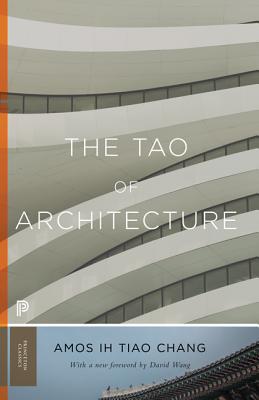Frank Lloyd Wright first noted the affinity between modern Western architecture and the philosophy of the ancient Chinese writer Laotzu. In this classic work, Amos Ih Tiao Chang expands on that idea, developing the parallel with the aid of architectural drawings and Chinese paintings. Now with a new foreword by David Wang, this book reveals the vitality of intangible, or negative, elements. Chang writes that these qualities make architectonic forms "come alive, become human, naturally harmonize with one another, and enable us to experience them with human sensibility." The Tao of Architecture continues to be essential reading for understanding the intersection between architecture and philosophy.

Frank Lloyd Wright first noted the affinity between modern Western architecture and the philosophy of the ancient Chinese writer Laotzu. In this classic work, Amos Ih Tiao Chang expands on that idea, developing the parallel with the aid of architectural drawings and Chinese paintings. Now with a new foreword by David Wang, this book reveals the vitality of intangible, or negative, elements. Chang writes that these qualities make architectonic forms "come alive, become human, naturally harmonize with one another, and enable us to experience them with human sensibility." The Tao of Architecture continues to be essential reading for understanding the intersection between architecture and philosophy.
Paperback
$14.95